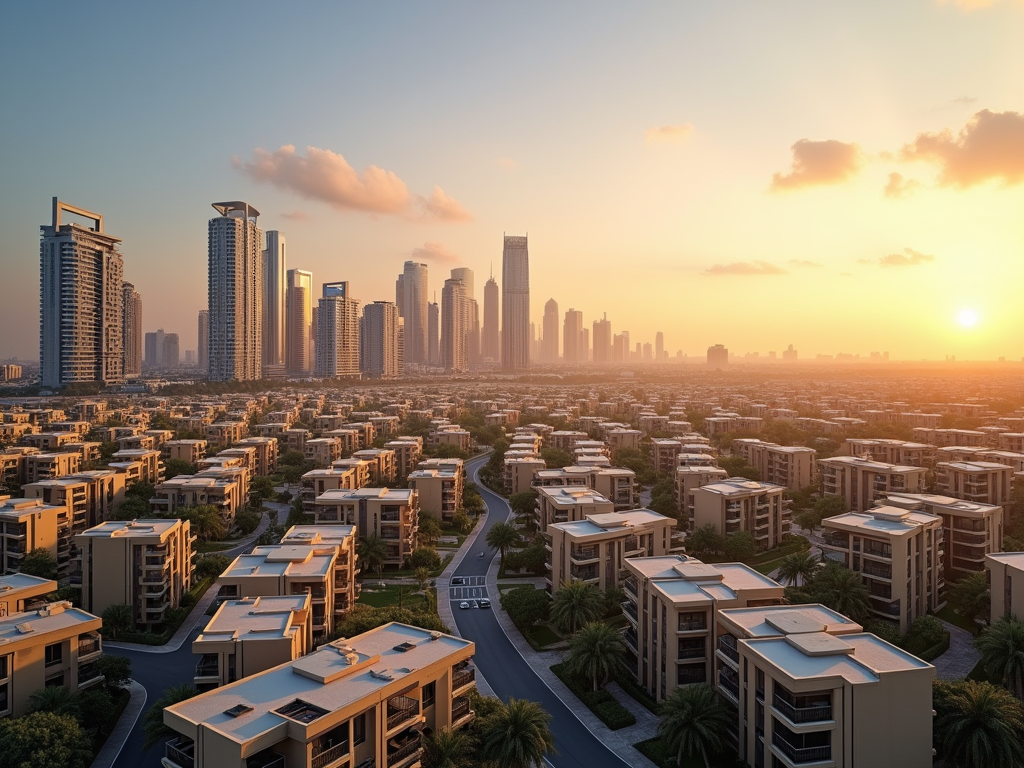Building a diversified real estate portfolio in Dubai involves strategic planning, understanding market trends, and considering various property types. The real estate landscape in Dubai offers a unique opportunity due to its economic stability, rapid development, and attractive returns on investment. This article will guide you through the essential steps to effectively create a diverse portfolio that mitigates risk and maximizes profit. From understanding the different types of properties to the necessary financial planning, the key to success lies in making informed decisions based on in-depth research.
Understand the Real Estate Market in Dubai

Before investing in Dubai’s real estate sector, it’s crucial to grasp the current market dynamics. The market is characterized by fluctuations driven by economic activity, foreign investment, and government regulations. Understanding these factors enables investors to identify potential opportunities and risks. Here’s a breakdown of essential market aspects you should consider:
- Market Trends: Keep an eye on both residential and commercial trends to identify which sectors are on the rise.
- Investment Zones: Familiarize yourself with areas designated for development, such as Dubai Marina, Downtown Dubai, and others.
- Regulatory Framework: Be aware of the laws governing foreign ownership and property rights to ensure compliance.
- Economic Indicators: Monitor indicators like GDP growth, employment rates, and population growth, as they impact real estate demand.
- Market Research: Use tools, research reports, and local insights to guide your investment decisions.
Diversify Property Types

Diversification is one of the fundamental principles of smart investing. In the context of Dubai real estate, this means investing in various property types. Consider the following categories:
- Residential Properties: Apartments, villas, and townhouses cater to various demographics. Look for locations with strong rental yields.
- Commercial Properties: Office spaces, retail units, and industrial properties can provide steady long-term income.
- Vacation Rentals: With Dubai being a tourist hotspot, consider investing in short-term rental properties to capitalize on seasonal demand.
- Off-Plan Properties: Buying off-plan properties can offer significant discounts and potential for capital appreciation once completed.
- Mixed-Use Developments: These properties combine residential and commercial space, offering flexibility and multiple income streams.
Financial Planning and Budgeting
Effective financial planning is essential when building a diversified real estate portfolio. Start with a clear budget to evaluate how much you can invest and the sources of your funds. Consider following steps:
- Assess Your Financial Situation: Determine your net worth, liquidity, and cash flow to understand your investment power.
- Investment Strategy: Decide whether you want to flip properties for quick profit or hold them for long-term rental income.
- Financing Options: Explore various financing options available, including mortgages, bank loans, and partnerships.
- Risk Management: Factor in market volatility by allocating reserves for unexpected expenses and property management costs.
- Tax Implications: Understand the taxes associated with property ownership and rental income to minimize liabilities.
Once you have diversified your portfolio, managing your properties becomes equally important. Effective property management ensures that your investments remain profitable. Here’s what to keep in mind:
- Regular Maintenance: Schedule routine inspections and maintenance to keep your properties in top condition.
- Tenant Management: Establish a good relationship with your tenants to ensure stable occupancy rates and timely payments.
- Professional Help: Consider hiring property management companies for stress-free administration of multiple properties.
- Market Feedback: Collect feedback from tenants to understand their needs and improve their living experience, thereby reducing turnover.
- Legal Compliance: Stay informed on local regulations regarding tenant rights to avoid legal issues.
Conclusion
In conclusion, building a diversified real estate portfolio in Dubai requires a robust understanding of the market, careful selection of property types, sound financial planning, and diligent property management. By embracing these strategies, you can navigate the complexities of real estate investment while positioning yourself for growth and sustainability in one of the world’s most dynamic property markets. Remember that a well-diversified portfolio not only minimizes risk but also enhances your potential for financial success.
Frequently Asked Questions
1. What property types should I invest in for diversification?
Invest in a mix of residential, commercial, vacation rentals, off-plan properties, and mixed-use developments to achieve a balanced portfolio.
2. How can I finance my investment in Dubai real estate?
You can explore various financing options such as mortgages, personal loans, or partnerships to fund your real estate investments.
3. Is it necessary to hire a property management company?
While it’s not mandatory, hiring a property management company can relieve you of potential stress from managing multiple properties and allow you to focus on growth strategies.
4. How do I assess the profitability of a property?
Calculate the rental yield, check comparable property prices in the area, analyze occupancy rates, and evaluate long-term price appreciation trends.
5. What should I consider before investing in off-plan properties?
Research the developer’s reputation, project timelines, payment plans, and the overall market potential of the location where the off-plan property is situated.
